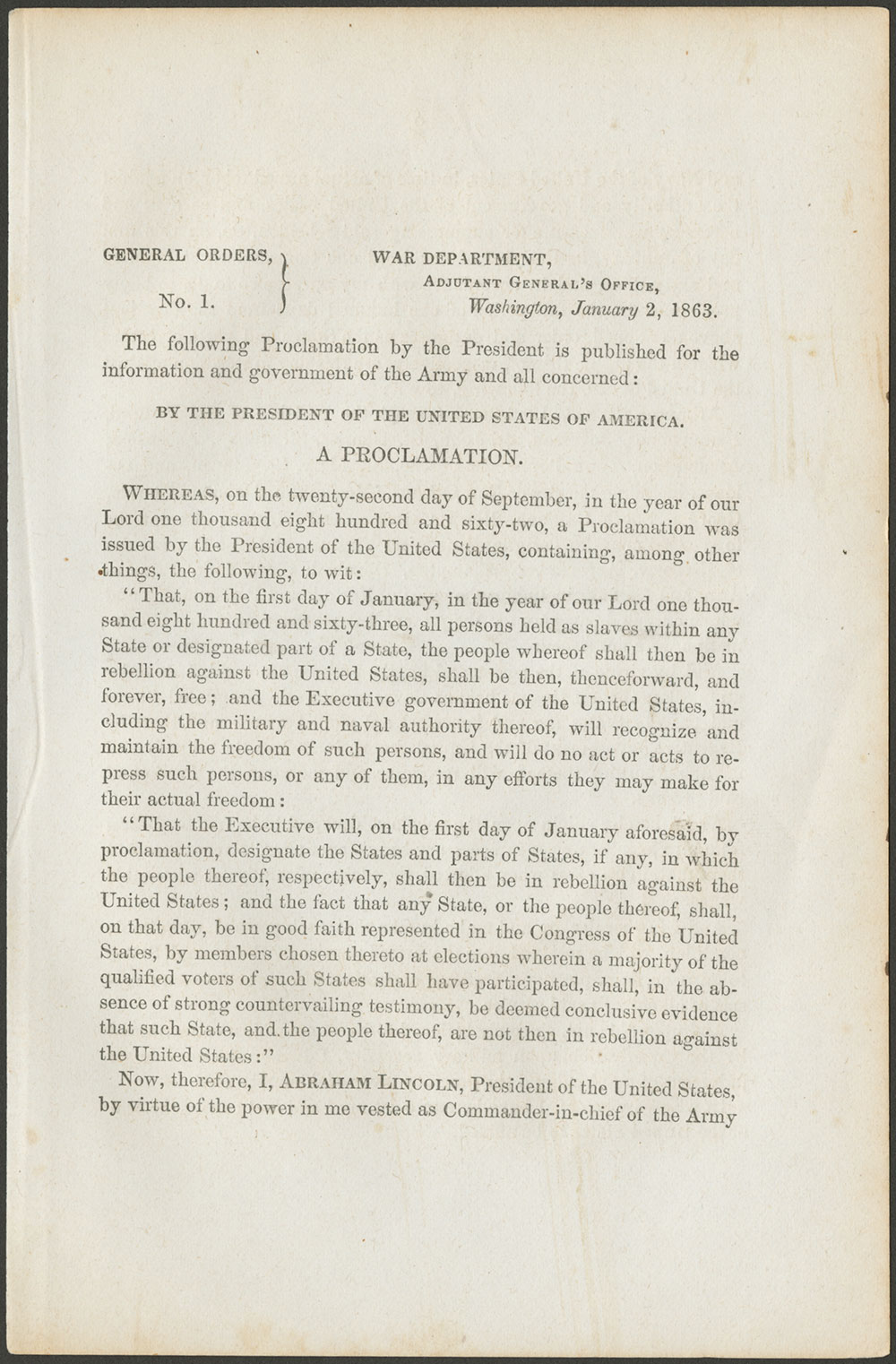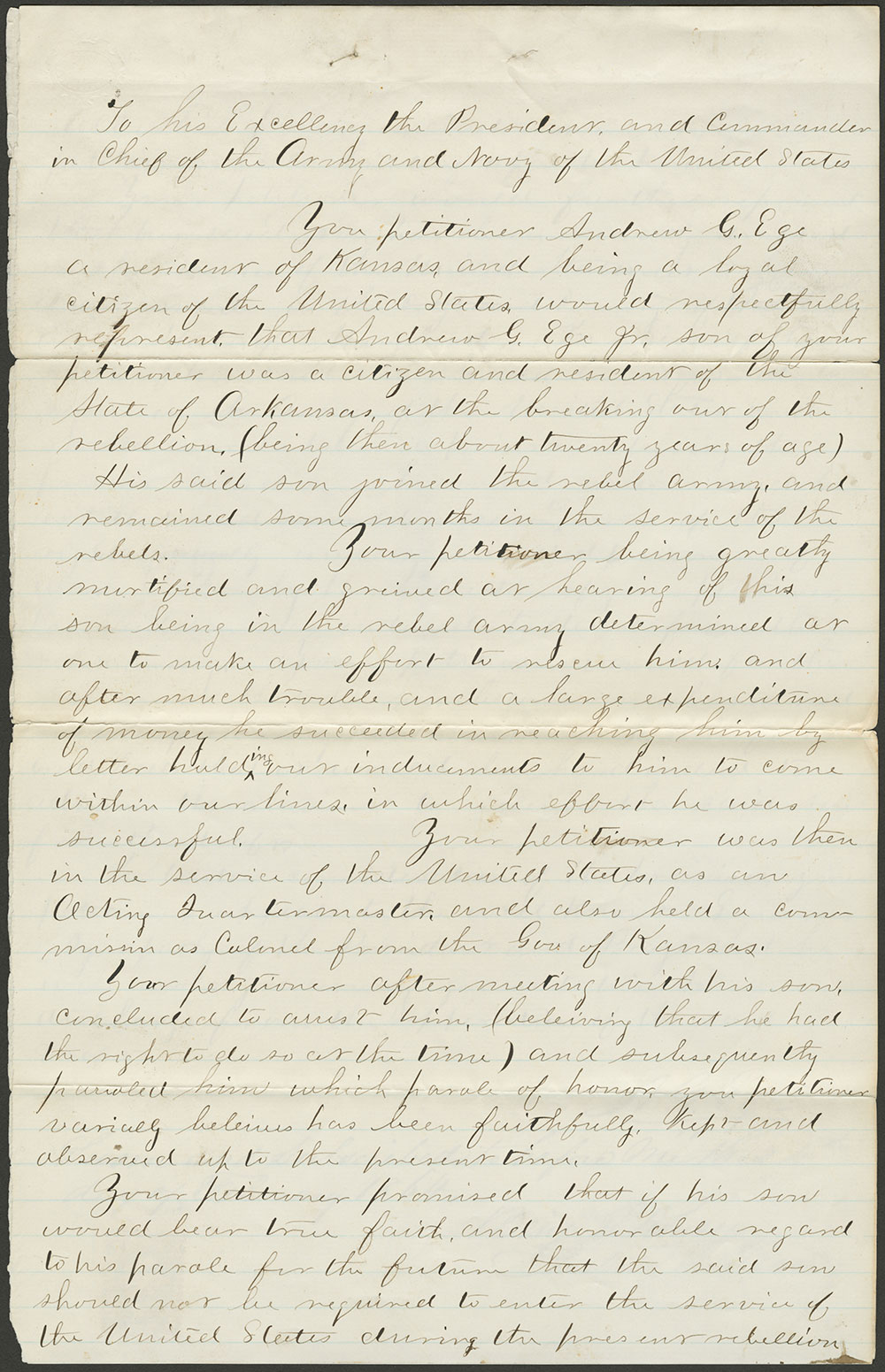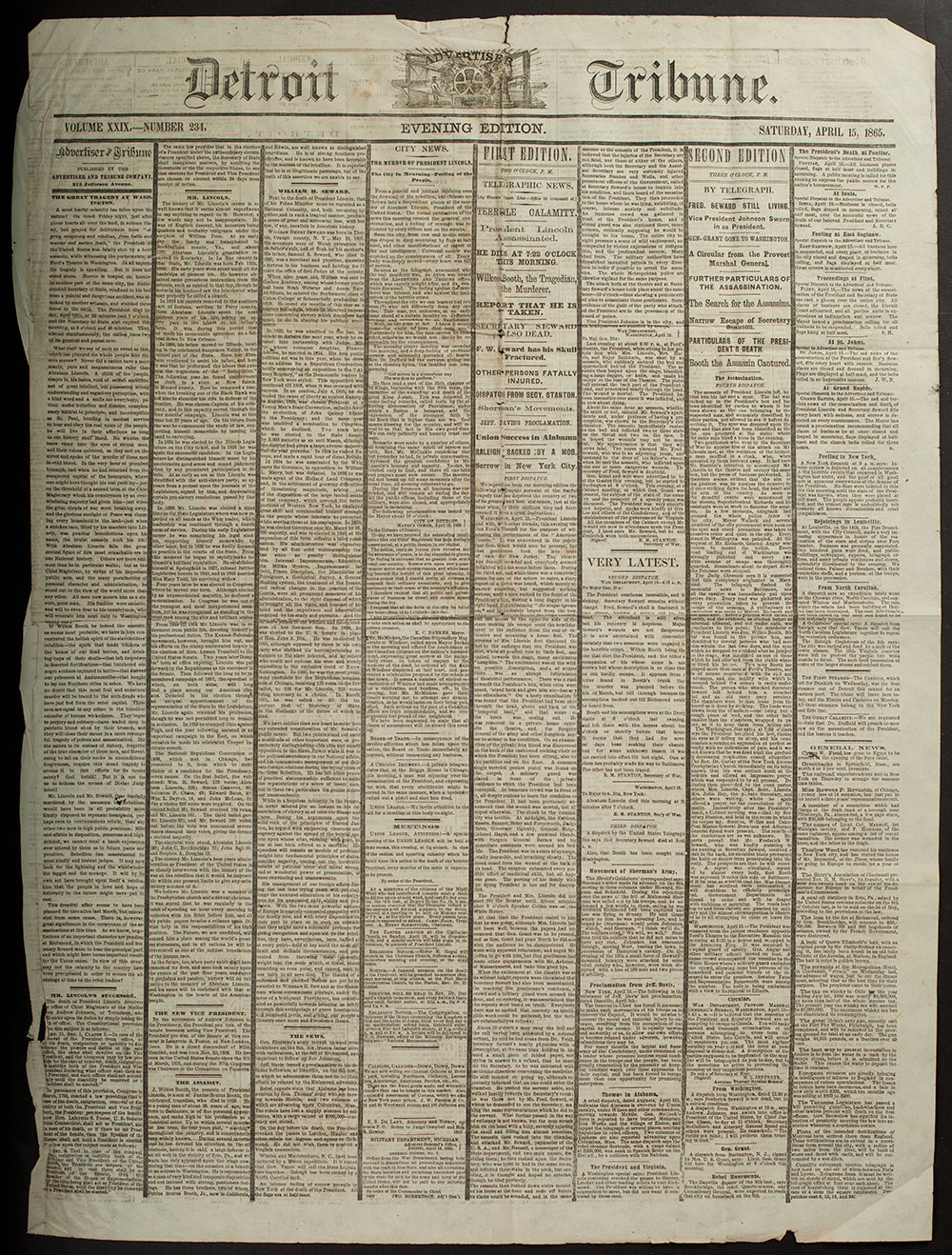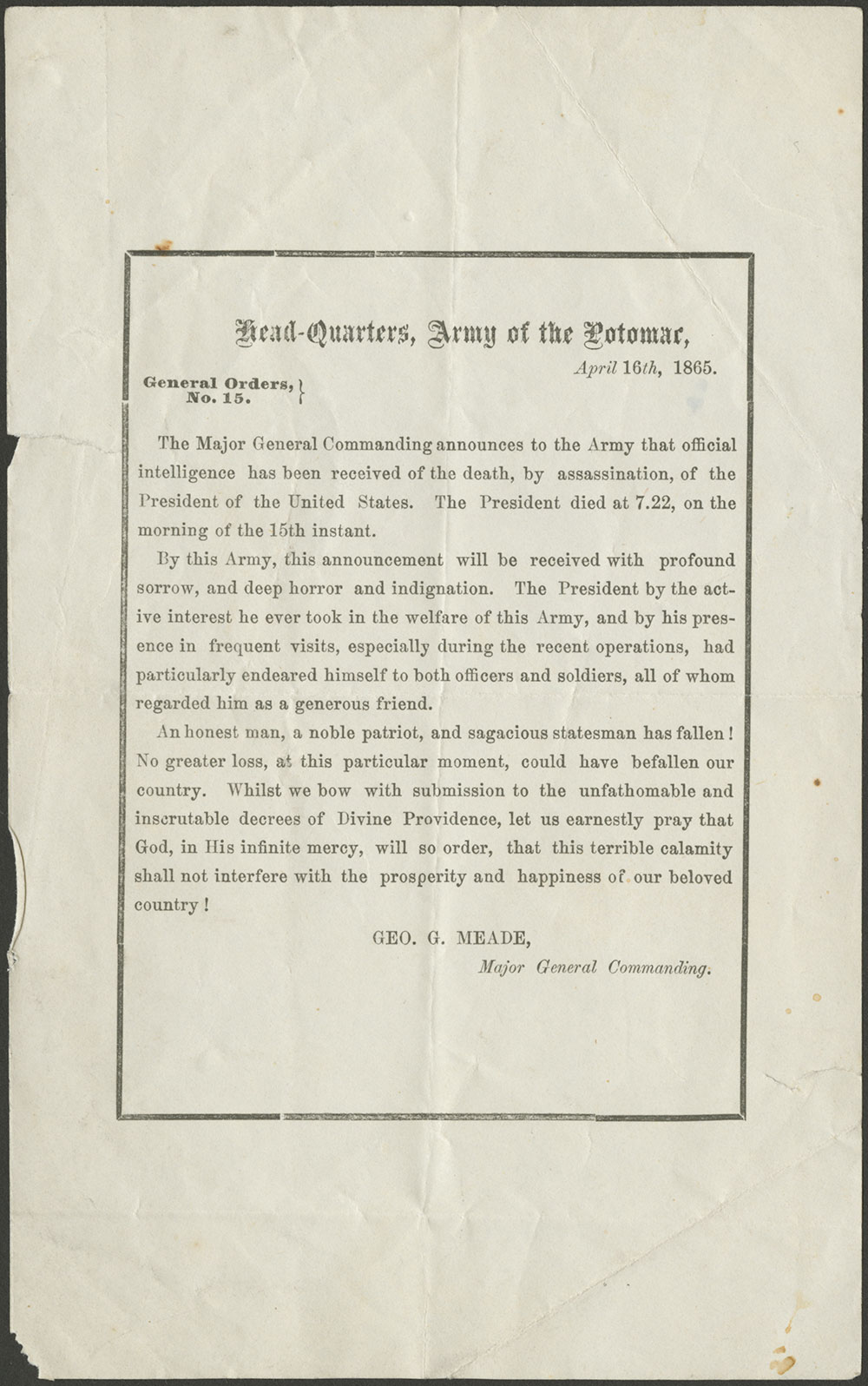Abraham Lincoln
Introduction

Rising above the clamor of voices emanating from the Civil War, the voice of Abraham Lincoln is preeminent. In his first inaugural address, he said, It follows … that no State upon its own mere motion can lawfully get out of the Union …. The Gettysburg Address, of course, is the most poignant of all of his discourses: Now we are engaged in a great civil war, testing whether that nation, or any nation so conceived and so dedicated, can long endure.
In his second inaugural address, Lincoln offered these immortal words: With malice toward none, with charity for all, with firmness in the right as God gives us to see the right, let us strive on to finish the work we are in, to bind up the nation’s wounds, to care for him who shall have borne the battle and for his widow and his orphan, to do all which may achieve and cherish a just and lasting peace among ourselves and with all nations.
Evidence & Artifacts
 View 4 images
View 4 images
Abraham Lincoln. Emancipation Proclamation. 2 January, 1863. (Vault 973.714 L638 1863)
On 22 September, 1862, President Lincoln issued a preliminary proclamation that he would order the emancipation of all slaves in any state of the Confederate States that did not return to the Union by 1 January, 1863. None returned, and the order was signed and issued on 1 January, 1863.
The following day, the Government Printing Office printed the official order for the information and government of the Army and all concerned. Thus, the Emancipation Proclamation is an executive order and is not a law passed by Congress.
 View 4 images
View 4 images
Abraham Lincoln. Pardon Issued on Behalf of Andrew Ege, Jr. 4 February, 1864. (Vault MSS 325)
In a petition addressed to President Lincoln by Andrew Ege, Sr., he asks the President for a Pardon for his son, Andrew Jr. The son had joined the Confederate Army, realized he had made a mistake and had subsequently deserted the South to return home to his family. His father argued that if Andrew Jr. was forced to remain in the Union Army and subsequently be captured, he would be put to death.
It appears that President Lincoln read the petition and answered it the same day, 4 February, 1864.
Under the peculiar circumstances of this case, I am induced to order that this man – Andrew G. Ege, be discharged. A. Lincoln.
 View 2 images
View 2 images
Detroit Tribune. Evening Edition. Saturday, 15 April, 1865. (MSS SC 907)
Account of Abraham Lincoln’s assassination, printed the evening of his death.
 View 1 image
View 1 image
General George G. Meade. Headquarters, Army of the Potomac, 16 April, 1865. (MSS SC 907)
General George Meade, best known as the commander and leader of the army that defeated Robert E. Lee at the Battle of Gettysburg, released this statement on 16 April, 1865 concerning the death of President Abraham Lincoln the day before.